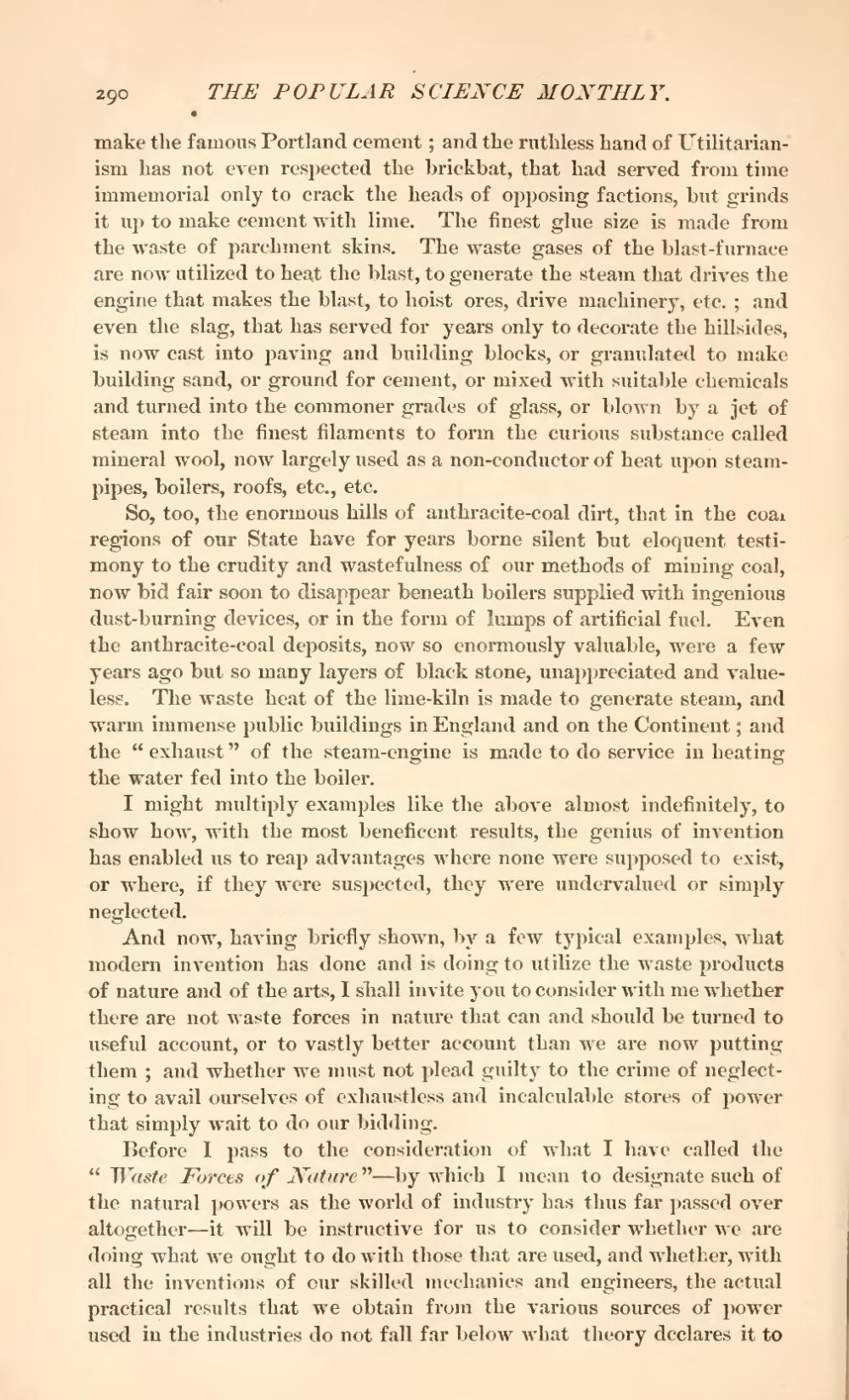make the famous Portland cement; and the ruthless hand of Utilitarianism has not even respected the brickbat, that had served from time immemorial only to crack the heads of opposing factions, but grinds it up to make cement with lime. The finest glue size is made from the waste of parchment skins. The waste gases of the blast-furnace are now utilized to heat the blast, to generate the steam that drives the engine that makes the blast, to hoist ores, drive machinery, etc.; and even the slag, that has served for years only to decorate the hillsides, is now cast into paving and building blocks, or granulated to make building sand, or ground for cement, or mixed with suitable chemicals and turned into the commoner grades of glass, or blown by a jet of steam into the finest filaments to form the curious substance called mineral wool, now largely used as a non-conductor of heat upon steam-pipes, boilers, roofs, etc., etc.
So, too, the enormous hills of anthracite-coal dirt, that in the coal regions of our State have for years borne silent but eloquent testimony to the crudity and wastefulness of our methods of mining coal, now bid fair soon to disappear beneath boilers supplied with ingenious dust-burning devices, or in the form of lumps of artificial fuel. Even the anthracite-coal deposits, now so enormously valuable, were a few years ago but so many layers of black stone, unappreciated and valueless. The waste heat of the lime-kiln is made to generate steam, and warm immense public buildings in England and on the Continent; and the “exhaust” of the steam-engine is made to do service in heating the water fed into the boiler.
I might multiply examples like the above almost indefinitely, to show how, with the most beneficent results, the genius of invention has enabled us to reap advantages where none were supposed to exist, or where, if they were suspected, they were undervalued or simply neglected.
And now, having briefly shown, by a few typical examples, what modern invention has done and is doing to utilize the waste products of nature and of the arts, I shall invite you to consider with me whether there are not waste forces in nature that can and should be turned to useful account, or to vastly better account than we are now putting them; and whether we must not plead guilty to the crime of neglecting to avail ourselves of exhaustless and incalculable stores of power that simply wait to do our bidding.
Before I pass to the consideration of what I have called the “Waste Forces of Nature”—by which I mean to designate such of the natural powers as the world of industry has thus far passed over altogether—it will be instructive for us to consider whether we are doing what we ought to do with those that are used, and whether, with all the inventions of our skilled mechanics and engineers, the actual practical results that we obtain from the various sources of power used in the industries do not fall far below what theory declares it to

